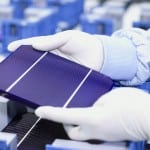The U.S. Court of International Trade has upheld a determination by the U.S. International Trade Commission (ITC) that imports of crystalline silicon photovoltaic (PV) cells and modules from China materially injured domestic solar companies.
The decision dated Aug. 7 (but made public on Aug. 21) rejects claims by Chinese firms Trina Solar, Wuxi Suntech Power, Suntech, and Yingli Green Energy that, among other things, the ITC did not take into account market conditions before making its injury determination.
Plaintiffs asserted that several considerations showed that the domestic market would have suffered the same fate irrespective of whether their products were available in the U.S.
For one, the price and demand for crystalline silicon PV are tied to the need to achieve grid parity, they argued. Also, government incentives that stimulated demand for crystalline silicon PV products in the U.S. were being phased out during the period of investigation spanning January 2009 through June 2012. The fastest growth in demand during that period was in the utility sector, where grid parity and government incentives had the greatest effect, the plaintiffs claimed.
However, Judge Richard K. Eaton found that the ITC rightly considered the volume, price effects, impact of subject imports, and other external market factors, when it made its determination.
The decision is another victory for defendant and intervener SolarWorld, a German-based firm that is the largest solar manufacturer in the U.S. The company filed antidumping and countervailing duty petitions with the Department of Commerce and ITC in October 2011 covering crystalline silicon PV cells and modules from China.
The U.S. ITC in November 2012 unanimously determined that imports of those products from China materially injured the U.S. industry, clearing the way for the Commerce Department to issue antidumping and countervailing duties of between 31% and 250% on Chinese producers.
—Sonal Patel, associate editor (@POWERmagazine, @sonalcpatel)









